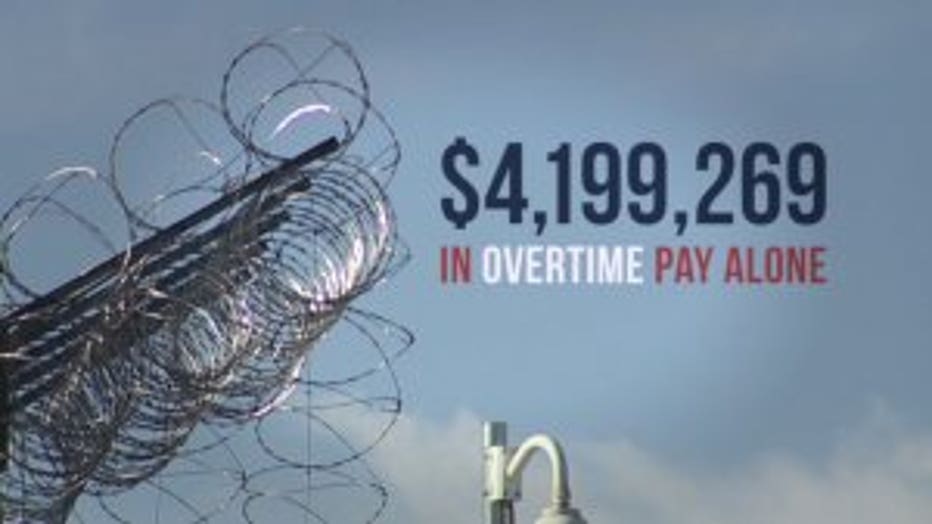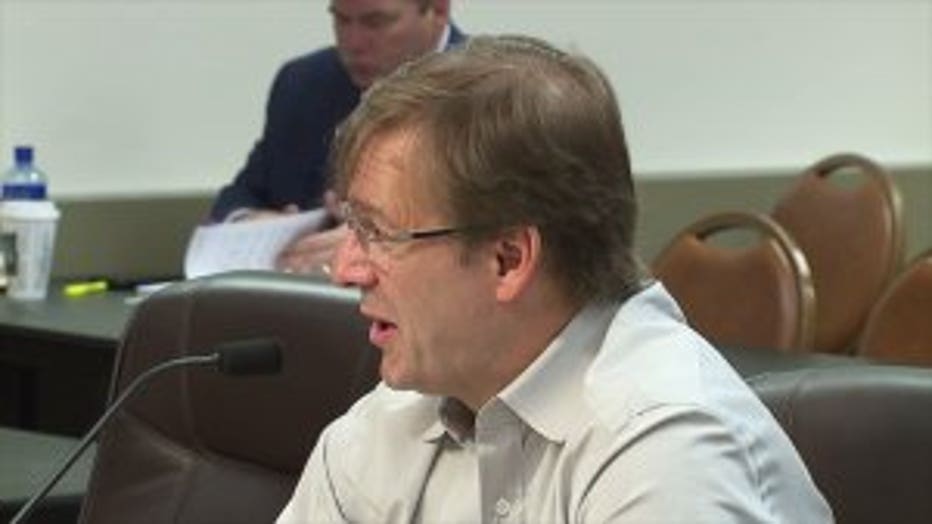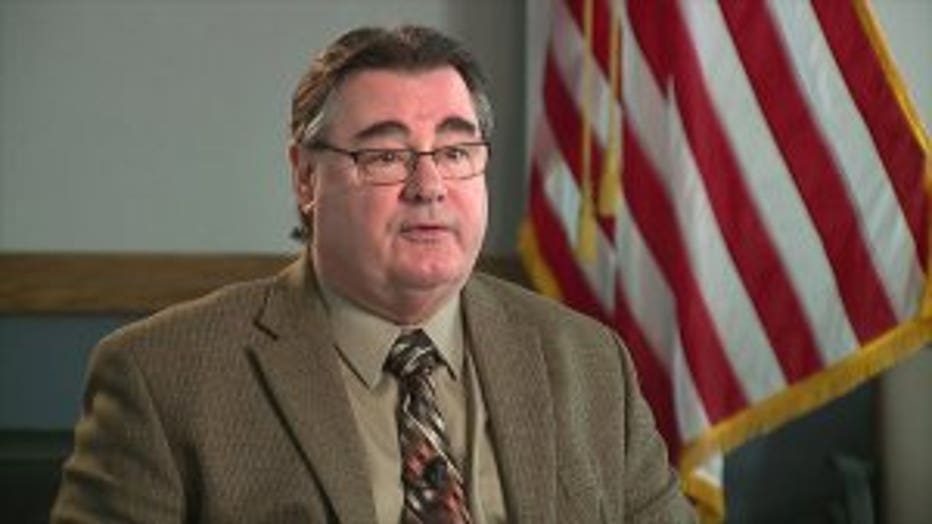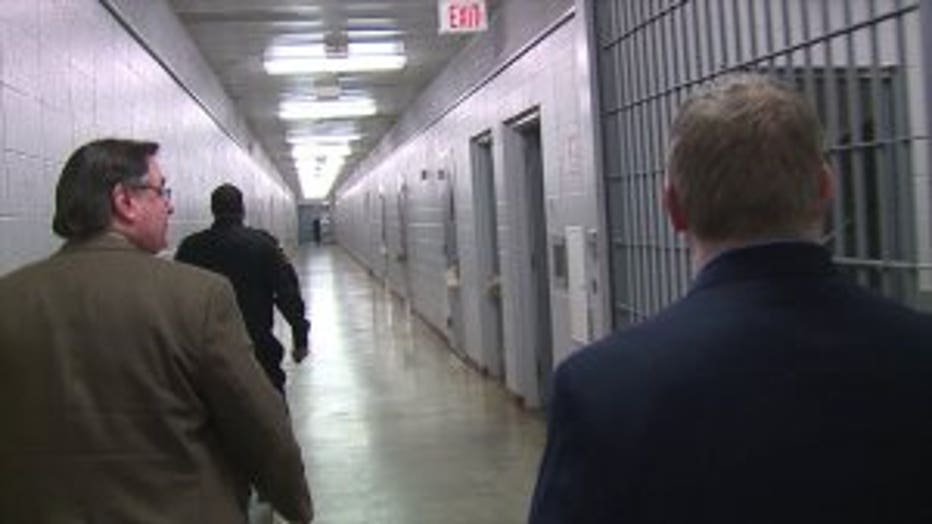'Everyone is exhausted:' Staffing 'crisis' at House of Correction drives surge in overtime
FRANKLIN — Dozens of people are being kept against their will at the Milwaukee County House of Correction.
But we're not talking about the inmates.
FOX6 Investigators show you the demoralizing job requirement some correctional officers call a 'crisis.'
15 miles south of downtown Milwaukee, the house of correction holds criminals sentenced to a year or less in jail.
Last year, Andrew Hintz served six months on the inside.
Only, Hintz is not an inmate.
"But he does have a very big paycheck," said Michael Hafemann, Superintendent of the House of Correction.
In 2018, Sgt. Hintz worked 2,480 hours of overtime, boosting his base pay of roughly $49,000 per year to more than $134,000 last year. That is more $30,000 higher than Hafemann, the superintendent.
"As long as they can come in and be effective, they can do that," Hafemann said.
Hintz worked an average of 82 hours a week last year, far more than any other correctional officer.
"It's insane. That's insane," said Kevin Schoofs, President of AFSCME Local 567, the union the represents correctional officers.
Hintz volunteered for most of that overtime, but many of his colleagues didn't have a choice.
"It just wears on you," Schoofs said.
Click here for 2018 HOC employee wages and hours

Correctional officers at HOC worked more than 143,000 hours of overtime in 2018. 22% of all hours worked were classified as overtime, which is paid at 1.5-times the employee's regular pay rate.
"You're expecting to go home and have dinner and spend time with your wife and kids. Or do whatever you want to do. And then right before you're supposed to go home, you're told, 'Oh, well now you've got to stay for another 8 hours,'" Schoofs said.
"You would almost declare it an epidemic," said one correctional officer, who asked to remain unnamed because he still works at HOC.
"It's the same thing that has been going on for years," the officer said.
A Milwaukee County audit conducted in 2008 found "onerous levels of forced overtime" were putting the HOC at "considerable risk of a major disruption."
A decade later, it seems very little has changed.
"They're just not doing anything to fix the problem!' Schoofs said.
In 2007, correctional officers averaged 427 hours of overtime each.
Last year, correctional officers and their supervisors hit 447 hours apiece at a total cost to taxpayers of nearly $4.2 million dollars in overtime pay alone.
"Certainly, it was too much overtime," Hafemann said.
According to hundreds of pages of paper logs reviewed by the FOX6 Investigators, 80 percent of those overtime shifts were mandatory, not voluntary.
"People were doing a number of things just to survive. They were taking suspensions just to be home with their families," the unidentified officer said.

Milwaukee County Executive Chris Abele has requested a $500,000 increase in the budget for correctional officer pay. The money is currently being set aside until the county board signs off on a plan to distribute the funds. That report is being prepa
"Sick leave usage does go up when you have a lot of forced overtime," Hafemann said, "because, in many cases, that's the only way people can get off."
Last fall, a pair of corrections supervisors wrote to Milwaukee County Executive Chris Abele, declaring the staffing situation a crisis.
"Everyone is exhausted," they wrote. "Will it really take someone to get hurt?"
In October, Abele proposed an extra $500,000 for wage increases to attract and retain workers -- $250,000 for the HOC and $250,000 for the county jail downtown.
"If we don't address this, this issue is going to become not just an expensive one, a dangerous one," Abele said.
"It's a baby step at most," Schoofs said.
But even that small step has yet to be approved by the county board.

Michael Hafemann, Superintendent of House of Correction, says he has reduced overtime substantially since the fall of 2018 through staff reassignments and temporary inmate program cutbacks.
"If I could give people merit raises, we know exactly who would get it and what type of raise they would get. But again, those funds are not available to us," Hafemann said.
After initially declining to do an interview, Superintendent Hafemann took the FOX6 Investigators on a tour of the facility last week.
He emphasized the programs they offer to inmates, from career guidance to job skill training to library services and more.
But Schoofs says all of the extra programming is part of the problem.
"They made these special positions, programs, all these K-9 handlers."
More work for a department that is already understaffed.
"I'm down to almost 29 officers short," Hafemann said.
The problem is not that the county hasn't authorized enough positions. It's that Hafemann can't fill them.
"The pay doesn't match the responsibilities," the unidentified correctional officer said.
Milwaukee County pays new correctional officers $18.53 per hour. That's three-to-four dollars less than some other nearby counties, like Waukesha, which recently advertised openings for female guards starting at $22.14 per hour.
"We are, in this region, the lowest paid starting wage," Hafemann said. "That is an issue."
To try and drum up new applicants, the superintendent lowered the minimum age to apply from 21 to 18. He expanded recruiting into Northern Illinois. And he started advertising HOC job openings on freeway billboards, Milwaukee County Transit buses, even sweatshirts screen-printed by inmates.
But Schoofs says none of that will make much difference if officers can leave for higher-paying jobs elsewhere.
"How do we fix the recruitment problem without raising the pay?" Schoofs said.

After initially declining to do an interview, Superintendent Hafemann took the FOX6 Investigators on a tour of the HOC facility in Franklin.
In the meantime, Hafemann says they've already cut down on overtime by reassigning staff and cutting back some programs, including reduced visiting hours for families of inmates.
"We're doing away with this, we're doing that. We're consolidating," Hafemann said.
Changes that have made a difference for now. But if history is a guide, it's a temporary reprieve.
"This is our third crisis since 2007," Schoofs said.
Before the cycle starts all over again.
Union president Kevin Schoofs voiced concerns about mandatory overtime to a county safety committee in the fall of 2017. Meeting minutes show he was advised to help workers get better sleep.
Nothing else appears to have been done about it until this fall, after the FOX6 Investigators started asking questions and requesting overtime records.
The county board has ordered the county's human resources staff to put together a report justifying any increase in pay. That report is not due until this summer, meaning any salary increases that are approved won't take effect until 4th quarter of 2019.
Superintendent Hafemann tells the FOX6 Investigators he plans to use that money for selective merit raises, meaning it will not raise officer pay across the board.
If his plan is approved, it will give a boost to those who've had no disciplinary action and scored highest on their most recent annual evaluations.

